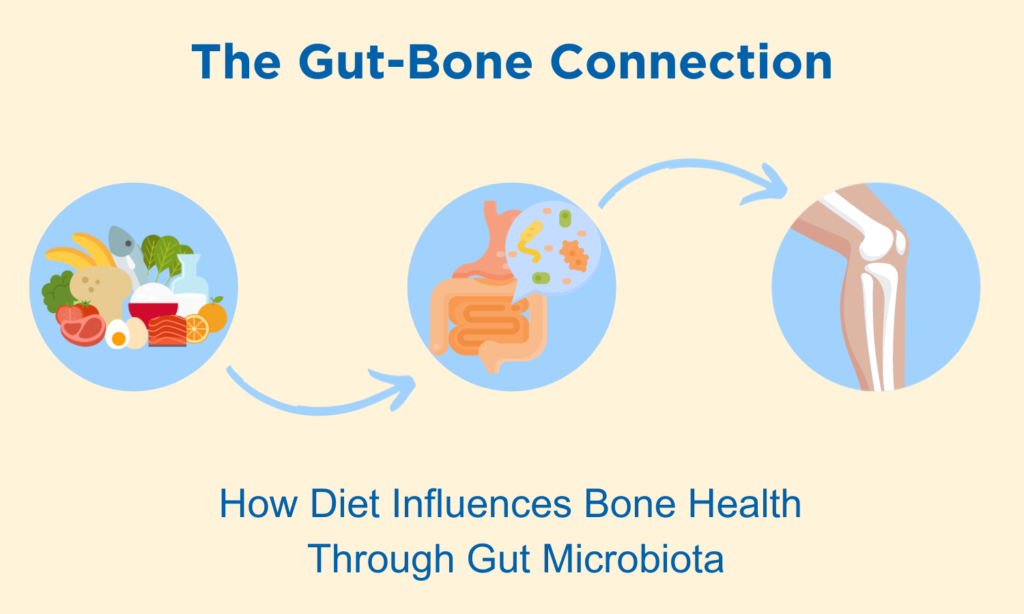
Unveiling the Importance: Why CRP Testing is Crucial for Women with Osteoporosis
While DEXA scans provide a rough idea of bone mineral density, they only offer a snapshot of bone mass without revealing any potential underlying causes of bone loss. When working with patients, I often suggest several other lab tests to help identify these causes. One of the most overlooked yet crucial tests for assessing overall health and its impact on bone density is the C-reactive protein (CRP) test.

C-reactive protein…or a CRP is a marker of inflammation in the body, and chronic low-grade inflammation can significantly affect bone health.
Why is CRP Testing Important for Women with Osteoporosis?
Chronic inflammation can significantly impact bone health through various mechanisms. Here are some key points:
1. Increased Bone Resorption: Chronic inflammation increases bone resorption by stimulating the production of pro-inflammatory cytokines, which in turn activates osteoclasts, the cells responsible for breaking down bone. When there are too many active osteoclasts, bone is broken down faster than it can be rebuilt.
2. Decreased Bone Formation: Inflammatory conditions can inhibit the function of osteoblasts, the cells responsible for new bone formation, leading to reduced bone production. This imbalance between increased bone resorption and decreased bone formation results in overall bone loss.
3. Nutritional Deficiencies: Chronic inflammation often accompanies poor nutritional status, which can further impair bone health. Conditions affecting the gastrointestinal tract can reduce nutrient absorption, exacerbating bone loss.
4. Hormone levels: Inflammation can disrupt the regulation of hormones like estrogen and progesterone, which are essential for maintaining bone density. It can also elevate cortisol levels, leading to increased bone resorption and decreased bone formation.
5. Increased Fracture Risk: Research studies have shown that elevated levels of inflammatory markers like CRP are linked to a higher risk of fractures, independent of other osteoporosis risk factors.
Even if you don’t have typical osteoporosis risk factors like advanced age, low body weight, or a family history of the condition, having high levels of inflammatory markers in your body could still increase your risk of fractures. This highlights the importance of monitoring and managing inflammation as part of a comprehensive approach to bone health.
One of my favorite natural methods to lower CRP levels and combat inflammation is by enjoying a soothing cup of turmeric ginger tea or a refreshing glass of turmeric ginger water. This delicious beverage not only soothes the soul but also offers numerous health benefits that support overall wellness and bone health.
The Power of Turmeric Ginger Tea in Reducing CRP Levels:
1. Anti-Inflammatory Benefits: Both turmeric and ginger have been extensively studied for their ability to lower inflammation. Regular consumption of these spices can help reduce CRP levels, indicating a decrease in systemic inflammation and protecting bone health.
2. Antioxidant Properties: The antioxidants in turmeric and ginger combat oxidative stress, which is linked to inflammation and bone degradation. By neutralizing free radicals, these spices help preserve bone density and overall health.
3. Immune Support: A healthy immune system is essential for managing inflammation. Turmeric and ginger support immune function, helping the body to respond more effectively to inflammatory triggers and reduce chronic inflammation.
A Patient Success Story:
One of the most inspiring success stories comes from a recent patient who significantly reduced her CRP levels in just one year. She started with an alarmingly high CRP level of 18.6 mg/dL. By incorporating turmeric ginger water into her daily routine and taking an herbal anti-inflammatory supplement containing ginger and turmeric, her CRP level dropped dramatically to 5.8 mg/dL. While I don’t yet have a new DEXA scan to confirm that her reduced CRP levels have directly improved her bone health, numerous studies have shown an inverse relationship between CRP levels and bone mineral density (BMD), especially in the femoral neck and lumbar spine. In simpler terms, higher CRP concentrations are associated with lower BMD values, and lower CRP levels tend to correspond with higher BMD values.
Don’t overlook the power of CRP testing! It is a key piece of the puzzle in fighting osteoporosis.
In my BONES Method™ Program, we review all the essential tests for bone health and explain why they are important.
To learn more about the BONES Method™ Program to be sure to sign up here.







